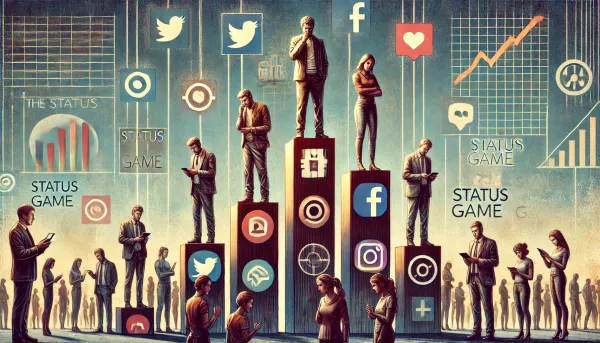The need for feedback
All people need feedback, and we need it often. Without it, we don't know if we should correct something or what is more important; we don't know if what we do is good. Without it, even if we do a good job, our perception starts to deteriorate over time.

Often, things are different than you think, and explanations for what you see around are more straightforward than what you have thought.
If you assume that something is important or works in a specific way, but nobody told you it works like this; you should seek confirmation of your assumption.
Ask: "Look, I think this is important and we should behave in this way, because of X will happen. Is it right?" You will be surprised how often the answer is different than your assumption about it.
It is especially important when you enter a new environment (e.g., a new job) where you bring all your ways of doing things and assumptions from the last place and environment. Those assumptions might be wrong. You need to open a new book, use your previous experience, and not assume that things are always the same.
I see this pattern often with new people coming to our organization. I started to expect that it would take three to six months before they would shake all the previous assumptions and behaviors and accept that it is a bit different here.
Observe yourself and how you think about things you assume, especially in new environments. Be open. Ask questions when in doubt. It will give you a much better experience.
All people need feedback, and we need it often.
It is our feedback loop (wow, Mr. Obvious ;) ).
Without it, we don't know if we should correct something or what is more important; we don't know if what we do is good. Without it, even if we do a good job, our perception starts to deteriorate over time.
"Am I good at what I'm doing?"
"Is what I'm doing worth it?"
Feedback is not only negative or corrective. Feedback is also an appreciation of someone doing a good job or confirming it to someone. It doesn't have to be big or wordy - sometimes simple "look, I liked what you delivered, and it is well done" is enough.
Ask yourself two questions:
- When was the last time you've heard something like it from anyone at your team/company/family?
- When was the last time you said something like it to anyone at your team/company/family?
We are being taught (at least in my part of the world) that good performance is expected (it starts with an early school experience). Often, only correction or feedback is delivered when you deviate from "excellence." We are not being taught that feedback might also confirm someone having a good outcome or behavior daily.
The place we often forget about it in our homes and families (at least I need to pay more attention to it).
We all need to give more feedback, especially in cases where it is rarely given. What are those cases? An example from this week at work.
I spoke with one of my team members about the project in some trouble, and during the discussion, it was said about one of the team members: He is a good engineer, needs some experience, but he is a good one.
My next question was: Have you told him about it?
The answer: No, he knows it.
No, he doesn't. And even if (s)he knows it, it needs to be said explicitly once in a while.
You and I live in a competitive environment with high expectations. People expect that things will always be done well. We need to excel, do a great job. If it is done this way, perfect, life goes on.
STOP. It is exactly a moment when we need to stop once in a while and say it explicitly - It was well done. You are good at what you are doing. You are a sound engineer.
There is a need to point out good behavior and reinforce it with positive feedback. People need it, and they assume that they are good and doing a great job might be wrong. This person might beat themselves with some small mistake they made, which is probably not a mistake but something negligible.
Why? Because the pressure around the IT industry and business are enormous. Success is everywhere (at least in what is presented), and expectations are high. In all this mess, we often forget to appreciate simple things. Job well done. We take it for granted.
It is not.
Think how often you've heard it and when was the last time you told someone that she/he is good at what she/he is doing.
Photo by Miguel Luis on Unsplash




